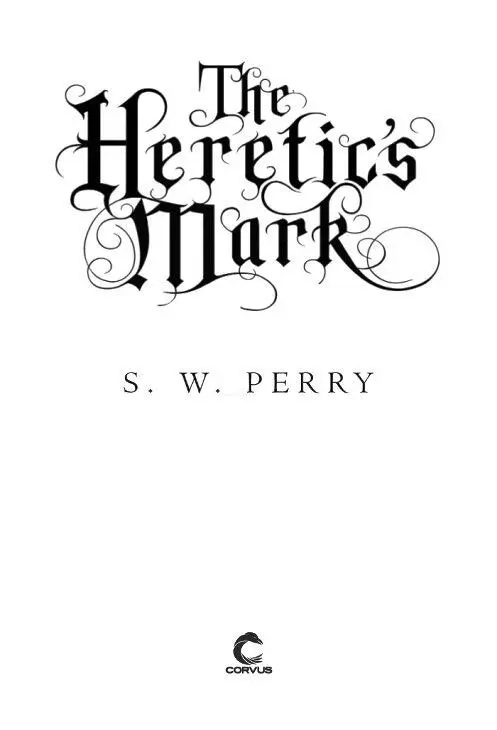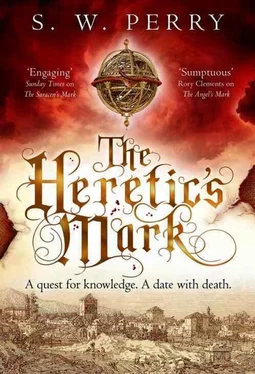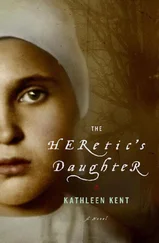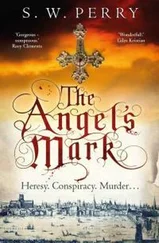S. W. Perry
THE HERETIC’S MARK
2021

When these prodigies do so conjointly meet, let no men say ‘These are their reasons, they are natural’: For I believe they are portentous things…
WILLIAM SHAKESPEARE,
JULIUS CAESAR
The White Tower, London, 7th June 1594
They come for him shortly before dawn with a showy rattling of keys loud enough to wake the ghosts on Tower Hill. He rises stiffly from the first proper rest he has had in weeks, his joints reclaiming the pain the cold stone floor has borrowed while he was asleep. ‘Anon, anon!’ he protests as they take him by his chains. ‘All in good time. Incarceration is no friend to old bones.’
‘Old bones or young – it matters not,’ says his gaoler with the wistful familiarity of the prisoner’s confessor. ‘You’re wanted at Whitehall.’
‘Whitehall?’ he replies. ‘Has Her Grace the queen spoken for me? Does the Privy Council accept my innocence? Are they setting me free?’
But no answer comes as they hurry him down the wet, slime-covered steps towards the waiting wherry – only the sharp-tongued screeching of the gulls from the darkness of the river.
After months in captivity, Dr Roderigo Lopez has almost forgotten what it is to look out upon a horizon slowly prising itself from the grip of night. He stares about in cautious expectation. By the time they approach Westminster there is enough light for him to see, to his left, the pale mass of Lambeth Palace rising above the reeds. To his right, the grand houses along the Strand are taking shape. He knows them well. Within their private chambers he has administered to the greatest men in England. Powder of Spanish fly to help the Earl of Leicester in the bedchamber when his ardour failed to match his ambition; mercury to cure young Essex of the French gout; enemas to ease old Burghley’s fractiousness at the dinner table. The rewards had been handsome, if only to buy his silence: a good house, a certain prestige, money, even the queen herself for a patient. But they had never truly seen him as one of their kind. In his heart, Lopez had always known it.
At the Westminster stairs the boatmen hand him over to a brace of uniformed halberdiers in crested steel helmets. He almost laughs. Do they think a single white-haired old Jew might threaten the very realm itself? Do they not know that, after months of confinement, he can barely walk unaided?
In a panelled chamber with an embossed ceiling painted blue and studded with yellow plaster stars wait two members of the Queen’s Bench, Attorney General Coke and Chief Justice Popham. They are grave men in ermine-trimmed gowns. No smiles. Barely a greeting. They sit behind a table spread with expensive crimson cloth. It is bare, save for a leather-bound Bible and a roll of parchment with a tail of golden ribbon and a grand wax seal attached. Lopez notes the seal has been broken.
Let them think you’re the last man on earth to bear a grudge, he tells himself. They might find a little mercy in their cold hearts.
‘You’re up early, gentlemen,’ he says, smiling.
‘This is not a business for late sleepers,’ Coke says.
‘Have you brought Her Grace’s letter of pardon with you?’ Lopez asks, glancing at the parchment.
But their hard, formal faces tell him that whatever this document is, it does not carry his salvation. The pain in his joints, temporarily forgotten in the blossoming of hope, begins to scream at him again: Fool… fool for ever thinking they would find mercy in their hearts for a man like you.
With indecent haste, Coke and Popham put him through a perfunctory second trial, as though the first – it seems an age ago now – had somehow failed to stick, like the colour in a badly dyed shirt. A detestable traitor, they call him. Worse than Judas. There is no crime on earth more heinous than plotting to poison a monarch anointed by God. He was guilty of it in February, he is somehow even guiltier in June. And so he will hang by the neck until half-choked, suffer the severing of his privy organs and disembowelment by the knife – all while there is enough life left in him to appreciate the executioner’s skill at butchery. And if that doesn’t convince him of his perfidy, they will quarter his torso with an axe, burn the sundered parts and throw the ashes into the river. He will have no grave. Only his head will endure a strange immortality: set upon a spike on the southern gatehouse of London Bridge as a warning to future would-be regicides.
Why do I not fall to my knees in terror? he wonders. Perhaps it is because terror has become such a familiar companion during his lonely imprisonment. He knows it like an old friend. It cannot bite him any harder now.
Until they tell him it is to be today. At Tyburn.

There is an etiquette to an execution for high treason. Whether it be a solemn confession or a passionate protestation of innocence, an address to the mob is required. And the condemned man must stand naked as he prepares himself for the leaving of this world, just as he was when he came into it.
The executioner tears the dirty shirt from Dr Roderigo Lopez’s back. He turns the pale, trembling body to the crowd. Look , he seems to be saying, can you not see the stain of guilt on the puckered white flesh?
‘I love the queen as well as I love our Lord!’ Lopez cries out.
‘Papist traitor!’ someone shouts. Others pick up the chorus: ‘Vile Hebrew… Spanish assassin…’ This last insult hurts him more than the others. He is Portuguese, not Spanish. The Spanish are his enemy, as much as they are to the people now hurling their abuse and spittle at him.
As the executioner places the rough hemp noose around Lopez’s frail neck to begin the slow gruesome journey, the words of the man who lit the fire that sustains the queen’s religion – Martin Luther – echo in the physician’s lonely, tormented soul: Every man must do two things alone… his own believing, and his own dying.

In a different life, the man watching from the crowd had been someone of substance. But that was before his fall.
Grand in stature with a voice to match, he too is a physician – once the most renowned anatomist in England. There had been a time, Sir Fulke Vaesy recalls, when he had been a proconsul of the medical profession. A time when he could afford to attend an execution in silk-lined hose and imported Bruges shirts. He has shrunk a little since then. His reputation has gone, and with it the income. The manor house at Vauxhall has gone too, sold to some upstart warden of the Fishmongers’ Guild. The expensive brocade doublet he had worn on his imperious strolls down Knightrider Street to the College of Physicians is now patched and faded, like the covering of an old chair. He no longer has the spare cash to replace it. Now he is reduced to giving purges and drawing blood, like a country barber-surgeon.
Sir Fulke Vaesy knows exactly who is to blame for this ruination. Being a man who values careful accounting – at least when he had property and possessions to account for – he has drawn up a proper reckoning. It does not exist on paper. It cannot be presented as a bill. Nevertheless, the columns are neatly ordered in his head: every humiliation, every slight, every averted eye and unanswered greeting, every cancelled invitation… all assigned a price and entered in the ledger.
Читать дальше














